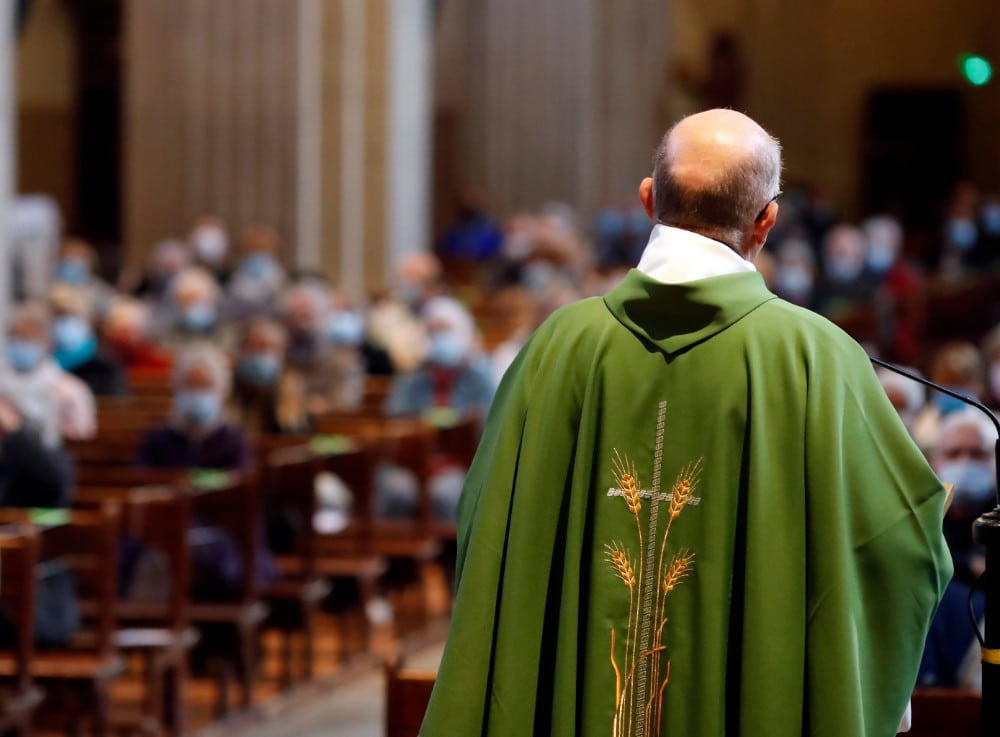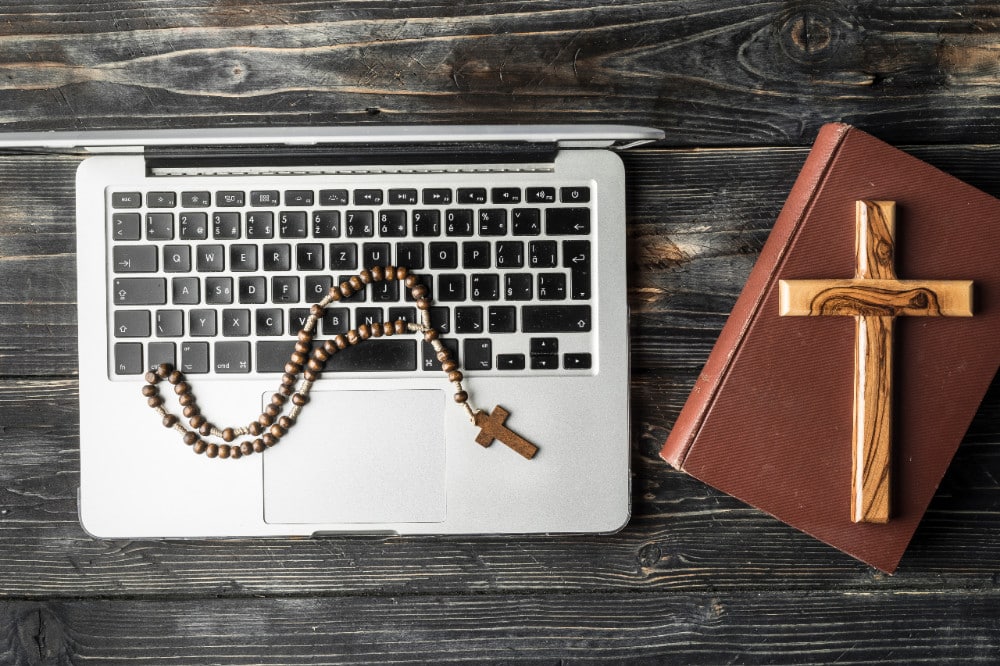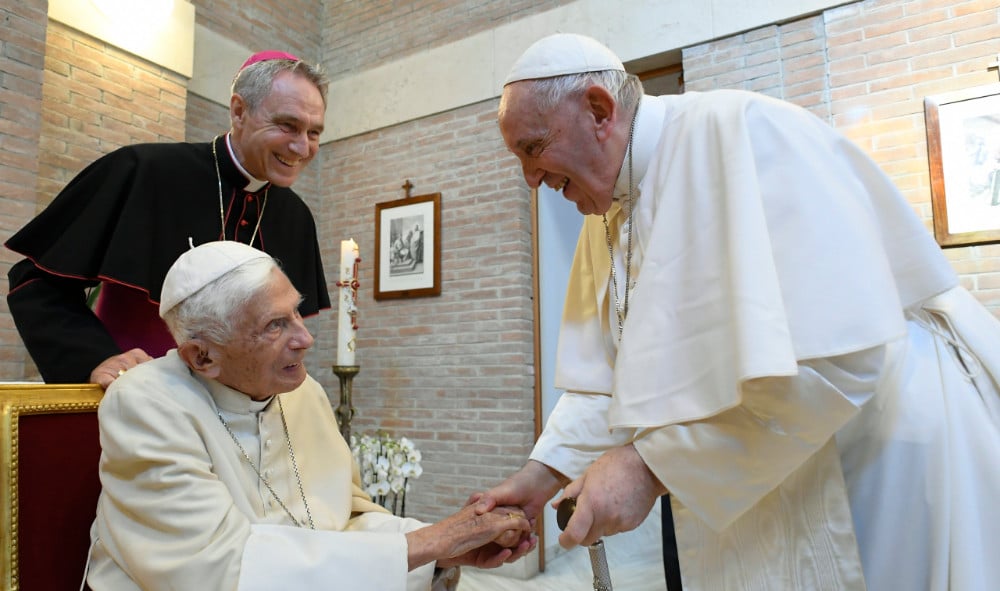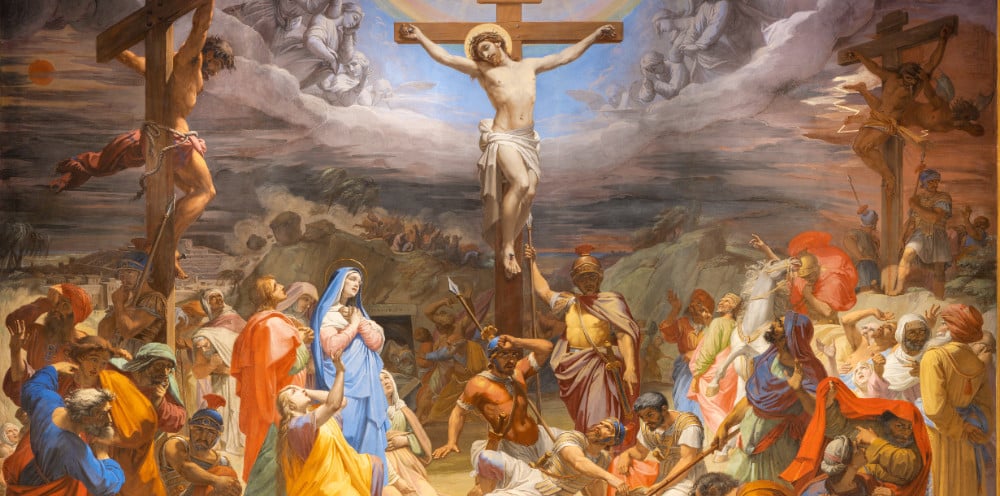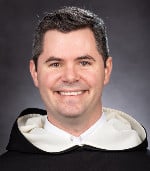 “Heaven is full of converted sinners,” preached Father Seán Sheehy in a parish church in Listowel, Ireland. Referring to the feast of All Saints at the beginning of November, Father Sheehy asked, “Why are they saints?” “Because they repented and they sought forgiveness. And so, today, God says to us, ‘I have come to call sinners, but if you don’t admit that you’re a sinner, then I can’t do anything for you,'” the priest insisted.
“Heaven is full of converted sinners,” preached Father Seán Sheehy in a parish church in Listowel, Ireland. Referring to the feast of All Saints at the beginning of November, Father Sheehy asked, “Why are they saints?” “Because they repented and they sought forgiveness. And so, today, God says to us, ‘I have come to call sinners, but if you don’t admit that you’re a sinner, then I can’t do anything for you,'” the priest insisted.
All of this is well and good and true. And frankly, some variation of this theme can be heard in practically every Catholic church each year around the feast of All Saints. But Father Sheehy’s homily, which can be viewed on Twitter, has sparked adulation and censor alike for preaching directly against particular sins.
Father Sheehy contended that a loss of a sense of sin is now widespread in Ireland. He preached: “We see it in the promotion of abortion. We see it in the example of this lunatic approach of transgenderism. We see it, for example, in the promotion of sex between two men and two women. That is sinful. That is mortal sin, but people don’t seem to realize it.”
Bishop Ray Browne of the Diocese of Kerry apologized for Father Sheehy’s preaching, saying, “I am aware of the deep upset and hurt caused by the contents of the homilies in question delivered over the weekend.” The bishop further added, “The views expressed do not represent the Christian position.” In an interview with Radio Kerry, Father Sheehy shared that Bishop Browne has restricted him from celebrating public Masses.
It seems to me that Father Sheehy said nothing untrue in his homily. In fact, I found some moments of the preaching deeply compelling. “God is also telling you and me today, ‘Look, you have a responsibility to seek out those who are lost.'” We cannot stand idly by while souls suffer, unable to derive strength from the healing balm of the Gospel. There must be room in our understanding of preaching for prophetic speech, for times when our consciences are pricked and we are called to account.
The priest’s call to responsibility in the work of preaching the Gospel is downright admirable. He told his congregation, “You have a responsibility to call people to an awareness of the fact that sin is destructive, sin is detrimental, and it will lead us to hell.” It strikes me as true that many Catholics would prefer to go along to get along rather than to plainly state a difficult truth. As a confessor, I face this issue all the time in helping form consciences in the confessional. Father Sheehy rightly asks, “How will people who are lost be found if we, as God’s people, don’t call them and say, ‘Look, God loves you, he has come to call sinners, but he wants you to have life and have it to the full’?”
However, I think legitimate questions can be posed about this particular homily. A homily is supposed to draw the hearer to Christ, to convince and to reveal. The Homiletic Directory, an instruction from the Congregation for Divine Worship, states, “Because the homily is an integral part of the liturgy, it is not only an instruction, it is also an act of worship.” It cannot be a speech, a lecture or a rant. The homily ought to inspire a soul to a deeper fervor for God and invite its hearers to enter more deeply into divine mysteries.
Periodically, in various writings, St. Thomas Aquinas referred to a principle that should be axiomatic for preachers. For Aquinas, “Whatever is received is received according to the mode of the receiver.” This philosophical principle has particular ramifications when debating the process of learning and cognition, but when applied to homilists, it means, roughly, “Are your people able to hear what you’re saying?”
Dominican Father Peter John Cameron argues that, most often, a boring homily is boring because the homilist answers a question no one has asked. Similarly, a preacher who fails to convey the attraction of virtue and the reasons why we should pursue goodness and holiness misses the mode of the receiver.
The concerns that have arisen from a parish church in Listowel aren’t isolated, however. And if we allow them to be, we’ve missed the point. Catholics throughout the world are deeply concerned about the quality and content of homilies. Preachers, take notice.
Father Patrick Briscoe, OP, is editor of Our Sunday Visitor. Follow him on Twitter @PatrickMaryOP.

